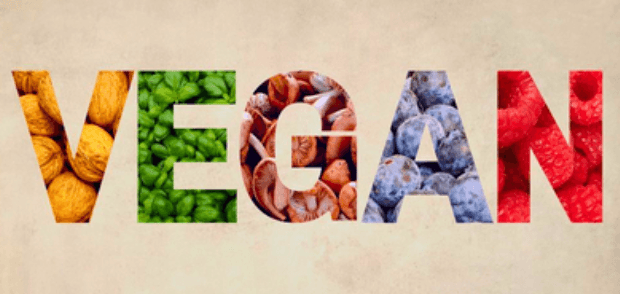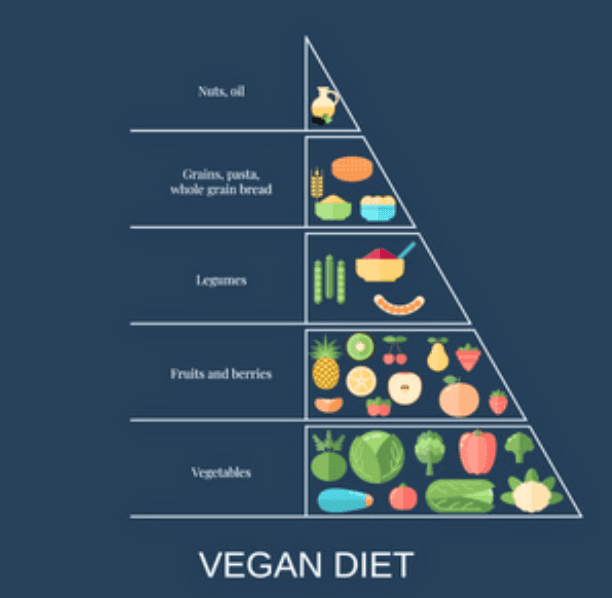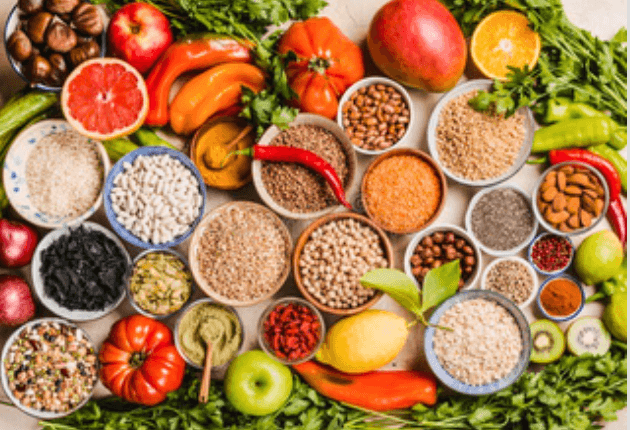Adopting a vegetarian diet/vegan diet
August 8, 2023
WRITTEN BY: KHILAN RAJESHBHAI KHETANI CLASS OF 2024
The blog discusses the adoption of vegetarian and vegan diets for various reasons, including availability, religious beliefs, animal welfare concerns, and health considerations. It highlights scientific studies that support these claims and stresses the importance of planning a well-balanced vegetarian diet to ensure adequate intake of essential nutrients.
INTRODUCTION
People choose a vegetarian or vegan diet for a number of reasons, some because meat is not readily available or affordable, others because of religious convictions or concerns about animal welfare. Health has become another reason why people are moving to plant-based diets. Research supports the idea that plant-based diets, including vegan diets, provide health benefits.Dietary guidelines and recommendations from nutrition experts reflect this, encouraging the adoption of diets(such as DASH diet) that are heavy on fruits and vegetables and restrict consumption of red meat. In this article we will explore how adopting vegetarian food helps to improve our health.
WHAT IS A VEGAN DIET?
Vegetarian diet focuses on plants for food. These include vegetables, fruits, dried beans and peas, grains, seeds and nuts. There is no single type of vegetarian diet.
Popular plant-based diets include:
• Vegetarian diet, which includes no meat.
• Vegan diet, a type of vegetarian diet that excludes not just meat but also animal products, such as milk or eggs.
• Lacto vegetarian diet, which includes plant foods plus dairy products. It is a less restrictive diet with more food choices than a vegan diet and more calorie-dense, so it is considered as the best diet for optimal child growth.
• Lacto-ovo vegetarian diet, which includes both dairy products and eggs.
• Ovo vegetarian,Eat no meat, poultry, fish, or dairy products, but do eat eggs.
• Partial vegetarian diet,Avoid meat but may eat fish (pesco-vegetarian, pescatarian) or poultry (pollo-vegetarian).

CAN BECOMING A VEGETARIAN PROTECT YOU AGAINST MAJOR DISEASES?
According to recent studies, it has shown those who are having a vegetarian diet they have significant changes in human body which had impacted in day to day work.
The significant changes seen are :
Heart disease. There's some evidence that vegetarians have a lower risk for cardiac events (such as a heart attack) and death from cardiac causes. In one of the largest studies, a combined analysis of data from five prospective studies involving more than 76,000 participants published several years ago — vegetarians were, on average, 25% less likely to die of heart disease.
Vegetarians consume smaller amounts of total fat and saturated fat and larger amounts of unsaturated fats and fiber than non-vegetarians. There is convincing evidence that vegetarians have lower rates of coronary heart disease (largely explained by low LDL cholesterol). In the Adventist Health Study-2 of 73,308 Seventh-day Adventists, researchers found that vegetarians had a 13 and 19% decreased risk for developing CVD and ischemic heart Disease.
Cancer. Hundreds of studies suggest that eating lots of fruits and vegetables can reduce the risk of developing certain cancers, and there's evidence that vegetarians have a lower incidence of cancer than nonvegetarians do. For example, in a pooled analysis of data from the Oxford Vegetarian Study and EPIC-Oxford, fish-eaters had a lower risk of certain cancers than vegetarians. In a 2016 study published in the American Journal of Clinical Nutrition, researchers analyzed the diets of over 26,000 men for nearly eight years. They found that vegan diets were linked with a 35% lower risk of prostate cancer compared to non-vegetarian diets.

Type 2 diabetes. Vegetarian diet is an effective method in glycemic control and that this diet control plasma glucose to a greater level than do control diet. Research suggests that a predominantly plant-based diet can reduce the risk for type 2 diabetes.
In studies of Seventh-day Adventists, vegetarians' risk of developing diabetes was half that of nonvegetarians, even after taking BMI into account
A recent meta-analysis, published in JAMA Internal Medicine, looked at nine observational studies totaling over 300,000 participants to see how plant-based diets (both vegan and vegetarian) relate to type 2 diabetes risk. Vegetarians had 23% lower risk of developing type 2 diabetes. Lipid profile and vegetarian diet.Plasma total cholesterol is lower in vegetarians as compared to non-vegetarians, primarily due to a reduction in LDL cholesterol, with little difference in HDL cholesterol.

This difference in plasma cholesterol is likely to be largely due to differences in animal fat intake since meat is a rich source of saturated fatty acid whereas some plant foods such as vegetable oils, nuts and seeds are rich sources of polyunsaturated fatty acid. Inflammatory biomarkers and vegetarian diet. The vegetarian diet contains different anti-inflammatory components. Lower serum concentrations of inflammatory biomarkers among vegetarians compared to non-vegetarians.
Fruits and vegetables are known as dietary sources of salicylic acid which is considered an active ingredient of anti-inflammatory medications. Further, fruits and vegetables may modulate gut microbiota via dietary fiber. The ratio of the anti-inflammatory bacterium, Faecalibacterium prausnitzii, is higher in vegetarian diets.
WHAT DOES SCIENCE SAY?
According to the American Dietetic Association, "appropriately planned vegetarian diets including total vegetarian or vegan diets, are healthful,nutritionally adequate, and may provide health benefits in the prevention and treatment of certain diseases.
"Appropriately planned" is the operative term. Unless you follow recommended guidelines on nutrition, fat consumption, and weight control, becoming a vegetarian won't necessarily be good for you. The most important thing for vegetarians of all kinds to remember is to make sure they are getting key nutrients, including protein, fatty acids, iron, zinc, iodine, calcium and vitamins D and B-12. Protein is essential for building muscle mass, amino function, fighting disease and healing, vegans must eat soy protein the only vegetable protein which is as complete as animal protein.

Conclusion : Vegetarian diets are usually low in fat, particularly saturated fat and high in fiber. They are also likely to include more legumes, whole grains, nuts and fruits and vegetables and lack of most types of meat, which may provide many benefits for the prevention and treatment of obesity and chronic health problems, including diabetes and cardiovascular disease. Pursuing a well-planned vegetarian diet can meet all the nutritional needs of an individual.
Additionally, the vegetarian diet and plant-based eating pattern exert a beneficial effect on lipid profile, blood glucose and other biochemical parameters.
So a simple act of becoming a vegetarian will make a difference in benefitting your health. Give it a try and you will feel the change.
